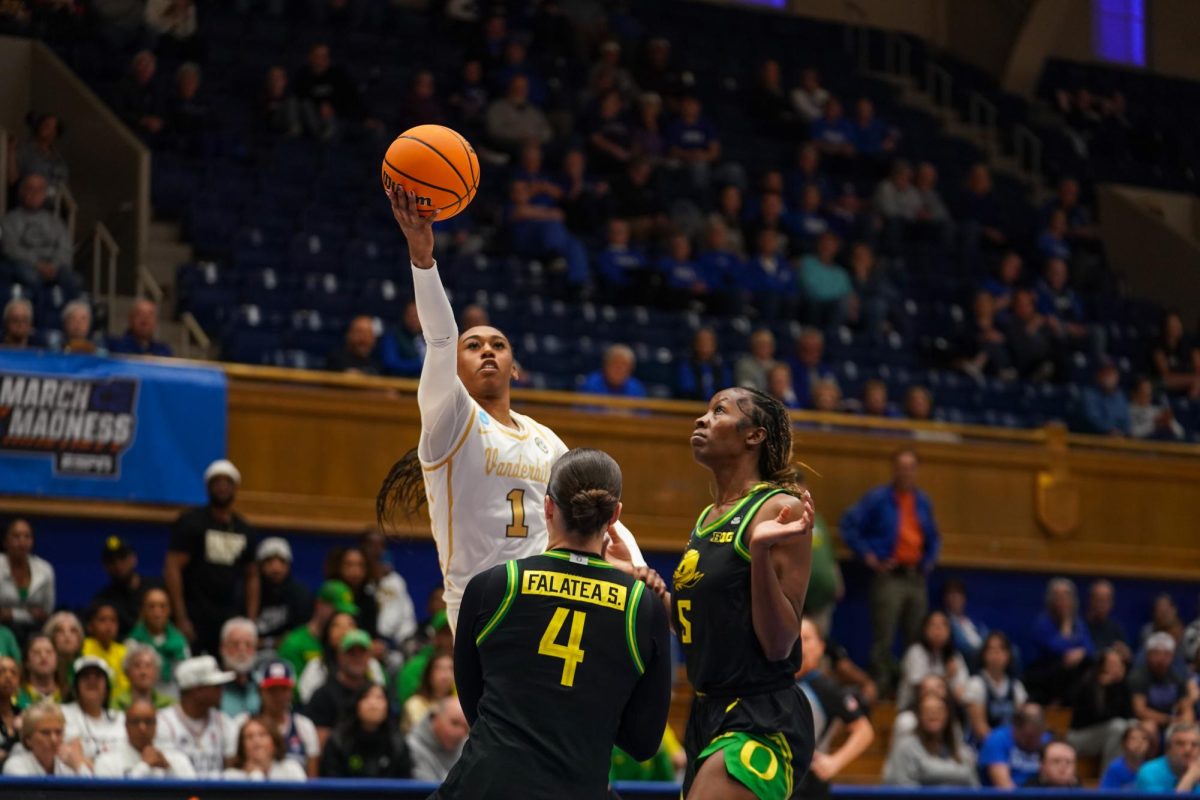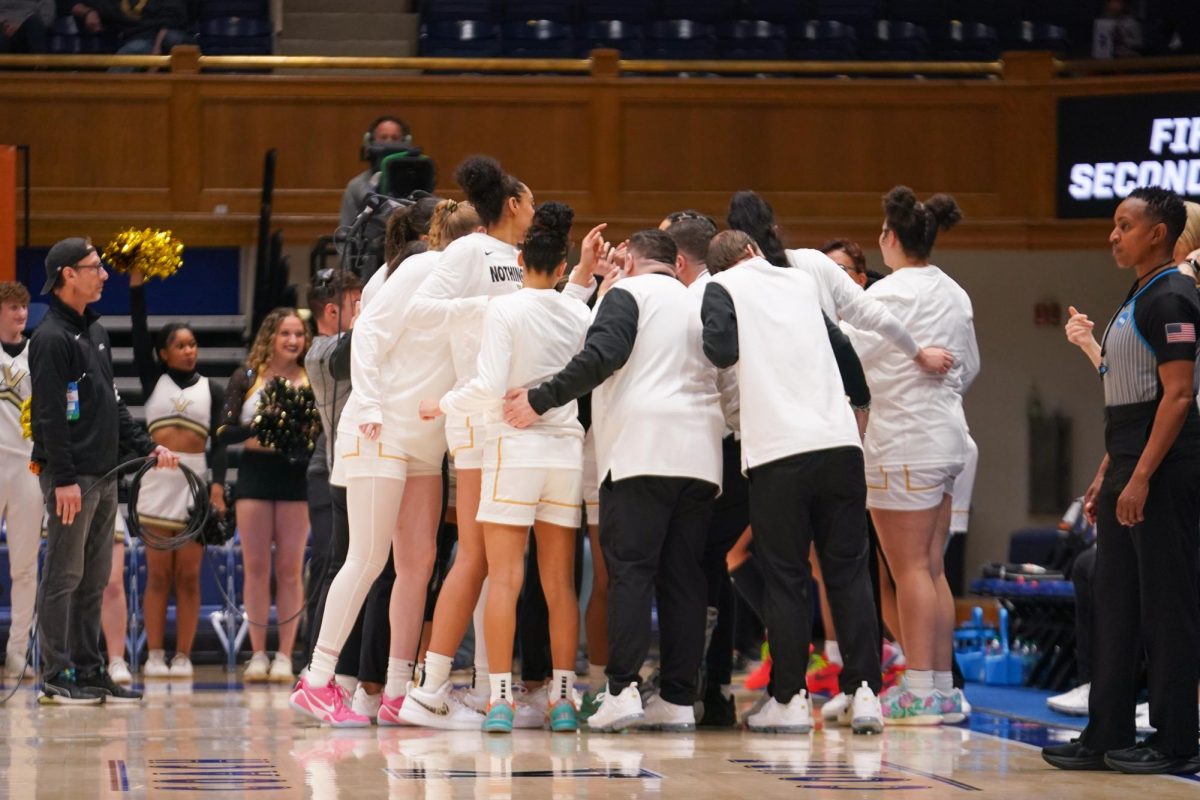Vanderbilt Women’s Basketball (20-9, 7-8) will end its season on the road, traveling to Columbia, Missouri, to face the Tigers (14-16, 3-12). Vanderbilt is coming off a statement 98-51 win against Texas A&M, including a monstrous 31-point performance from Khamil Pierre.
Missouri is coming off a nail-biting 75-73 victory over Arkansas, thanks to the steal and layup by Laniah Randle, who also led the team in points (20) and rebounds (9). Missouri, though having a disappointing season, has a history of spoiling the Commodores’ momentum. Last year in Memorial Gymnasium, a 9-7 Missouri team upset the Commodores to pick up its first SEC win of the season. The loss sent Vanderbilt on a downward spiral, losing five of its next six games in conference play. This year, with tournament seeding on the line, Vanderbilt is looking to prevent an underperforming Tigers team from breaking its confidence once again.
It’d be remiss to not mention the latest news in Columbia, as 15-year head coach Robin Pingeton is stepping away from the program at the end of the season. Pingeton picked up her 250th career win in the contest against Arkansas, in a carrer that includes 22 wins over top-25 opponents. University of Missouri athletic director Laird Veatch announced that a “nationwide search” to fill Pingeton’s position will begin following the conclusion of the season.
Pingeton isn’t gone just yet, though, so here are some keys to ensure that Vanderbilt leaves Columbus with its 21st win.
Awareness around the arc
Missouri loves to shoot 3-pointers — it’s the team’s main identity. The Tigers shoot the three ball at a 37.1% clip this season, good enough for second in the SEC. Many of these triples come off the ball, as well. Missouri’s offense is filled with pick-and-pop, dribble hand-offs and off-ball replacements, which confuses opposing defenses and gives shooters enough space to let it go. There is no hesitation with these shooters; they are going to shoot a lot. With the home crowd behind it, Missouri can ride momentum into a hot streak of long balls that could create an unclimbable hole for the Commodores.
Luckily, Vanderbilt is pretty good at preventing the perimeter attack. Vanderbilt allows opponents to shoot around 29.3% from behind the arc, tied for sixth in the SEC. The team’s focus on perimeter prevention has only improved as well, as the Commodore defense was prone to giving up open looks during nonconference play. However, Vanderbilt has held opponents under 30% shooting from downtown three times in its last five games, including a 7.4% performance from Mississippi State. If Vanderbilt stops Missouri’s three-point attack, it stops Missouri. Discipline, communication and active hands are almost all that Vanderbilt needs to win this game.
No bigs? No problem.
In our last Memorial Minutes, Vanderbilt’s lack of size down low was brought into question, as 5’10 Jordyn Oliver was asked to fill in at the four position, leading to a lot of dominant performances from opposing bigs. Unlike the rest of this season, that won’t be a problem for Vanderbilt on Sunday. Though many of Missouri’s players are well above the six-foot mark, they don’t play very much. Missouri’s main rebounding threat is Randle, who stands only at 5’11, an inch taller than Oliver. The whole team struggles in the paint, with Missouri’s 35.5 rebounds per game ranking third-to-last in the conference.
While Vanderbilt’s rebounding isn’t much better — it averages 38.5 boards per game — it’s not nearly as detrimental to the team’s success. The Commodores have proved they can win despite getting dominated on the boards, so having an opponent that doesn’t crash the glass is an even greater advantage for the Black and Gold. With that being said, the team still needs to rebound better. With Pierre — who averages 9.7 rebounds per game — acting as the only player with over five boards per contest, more Commodores need to help her, especially against bigger opponents. Leilani Kapinus has shown some assistance in the matter, including a six-rebound game against Texas A&M, but she hasn’t been consistent enough to move the needle in Vanderbilt’s favor. Against programs more dominant in the paint — like those that Vanderbilt will face in the SEC and NCAA Tournament — rebounding disparities will have a much higher impact. But on Sunday, the boards won’t be a big deal.
Getting Slaughtered
Grace Slaughter is the biggest name that Vanderbilt needs to watch out for on Sunday. The sophomore from Grain Valley, Missouri, is a stone-cold killer. The 6’2 guard averages 15.5 points per game on 49.7% shooting from the field and an astounding 46.2% from downtown. She’s acting both on and off the ball and the team goes as far as she does.
Her biggest issue: her confidence wavers. In some contests, Slaughter can throw up 15, 17 or as many as 21 shots while still keeping her percentages high. Then, she could fall to 11 or even as low as 5 field goal attempts in a game. There have been six games this season where Slaughter has attempted less than 10 field goals, four of which were losses. Her shooting from behind the arc also wavers. Slaughter failed to nail a 3-pointer in four games this season — all losses — and has three games with only one 3-pointer made — where the team has a 3-2 record.
Slaughter clearly has a massive correlation to team’s success. Thus, if Vanderbilt limits Slaughter, it limits Missouri. Granted, it’s not always that simple — Arkansas held Slaughter to 13 points on 4-of-11 shooting and still lost — but if Slaughter gets hot, the rest of Missouri will follow.
With NCAA seeding on the line, Vanderbilt wants to finish the SEC season strong. That starts with Sunday’s contest. A win in Columbia could carry the Commodores to a strong showing in the SEC Tournament, which would do wonders for their seeding come Selection Sunday. Lose on Sunday, and chaos could ensue once again, just like it did last year.
Vanderbilt will finish the regular season at Missouri on Sunday, March 2, at 2 p.m. CST.













